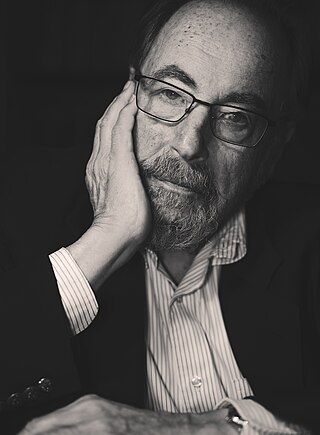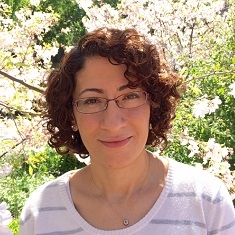Related Research Articles

David Baltimore is an American biologist, university administrator, and 1975 Nobel laureate in Physiology or Medicine. He is President Emeritus and Distinguished Professor of Biology at the California Institute of Technology (Caltech), where he served as president from 1997 to 2006. He also served as the director of the Joint Center for Translational Medicine, which joined Caltech and UCLA in a program to translate basic scientific discoveries into clinical realities. He also formerly served as president of Rockefeller University from 1990 to 1991, founder and director of the Whitehead Institute of Biomedical Research from 1982 to 1990, and was president of the American Association for the Advancement of Science in 2007.
Carl Wu is a Chinese-American scientist, and a Bloomberg Distinguished Professor of biology, molecular biology and genetics at Johns Hopkins University. He is active in the fields of chromatin and gene expression.

Dame Caroline Dean is a British plant scientist working at the John Innes Centre. She is focused on understanding the molecular controls used by plants to seasonally judge when to flower. She is specifically interested in vernalisation — the acceleration of flowering in plants by exposure to periods of prolonged cold. She has also been on the Life Sciences jury for the Infosys Prize from 2018.
Brigid L. M. Hogan FRS is a developmental biologist noted for her contributions to mammalian development, stem cell research and transgenic technology and techniques. She is currently a Professor in the Department of Cell Biology at Duke University, Born in the UK, she became an American citizen in 2000.
Utpal Banerjee is a distinguished professor of the department of molecular, cell and developmental biology at UCLA. He obtained his Bachelor of Science degree in chemistry from St. Stephen's College, Delhi University, India and obtained his Master of Science degree in physical chemistry from the Indian Institute of Technology, Kanpur, India. In 1984, he obtained a PhD in chemistry from the California Institute of Technology where he was also a postdoctoral Fellow in the laboratory of Seymour Benzer from 1984-1988.

Eric Newell Olson is an American molecular biologist. He is professor and chair of the Department of Molecular Biology at the University of Texas Southwestern Medical Center in Dallas, where he also holds the Robert A. Welch Distinguished Chair in Science, the Annie and Willie Nelson Professorship in Stem Cell Research, and the Pogue Distinguished Chair in Research on Cardiac Birth Defects.
Ruslan Maksutovich Medzhitov is a professor of immunobiology at Yale School of Medicine, a member of Yale Cancer Center, and a Howard Hughes Medical Institute investigator. His research focuses on the analysis of the innate immune system, inflammatory response, innate control of the adaptive immunity, and host-pathogen interactions.
Philip William Ingham FRS, FMedSci, Hon. FRCP is a British geneticist, currently the Toh Kian Chui Distinguished Professor at the Lee Kong Chian School of Medicine, a partnership between Nanyang Technological University, Singapore and Imperial College, London. Previously, he was the inaugural Director of the Living Systems Institute at the University of Exeter, UK and prior to that was Vice Dean, Research at the Lee Kong Chian School of Medicine.
Tony Kouzarides, FMedSci, FRS is a senior group leader Gurdon Institute, a founding non-executive director of Abcam and a Professor of Cancer Biology at the University of Cambridge.

Dame Amanda Gay Fisher is a British cell biologist and Director of the Medical Research Council (MRC) London Institute of Medical Sciences at the Hammersmith Hospital campus of Imperial College London, where she is also a Professor leading the Institute of Clinical Sciences. She has made contributions to multiple areas of cell biology, including determining the function of several genes in HIV and describing the importance of a gene's location within the cell nucleus.

Don W. Cleveland is an American cancer biologist and neurobiologist.
Luis F. Parada is a Colombian developmental biologist and neuroscientist who currently serves as Director of the Brain Tumor Center, Albert C. Foster Chair and American Cancer Society Research Professor at Memorial Sloan Kettering Cancer Center in New York City, New York.
Tapas Kumar Kundu is an Indian molecular biologist, academician and at present the Director of Central Drug Research Institute, a prestigious research institute of Council of Scientific and Industrial Research at Lucknow. He is the head of the Transcription and Disease Laboratory of Jawaharlal Nehru Centre for Advanced Scientific Research. He is known for his studies on the regulation of Gene expression and his contributions in cancer diagnostics and the development of new drug candidates for cancer and AIDS therapeutics. He is an elected fellow of the Indian Academy of Sciences, Indian National Science Academy and the National Academy of Sciences, India and a J. C. Bose National Fellow of the Department of Science and Technology. The Council of Scientific and Industrial Research, the apex agency of the Government of India for scientific research, awarded him the Shanti Swarup Bhatnagar Prize for Science and Technology, one of the highest Indian science awards, in 2005, for his contributions to biological sciences. He is also a recipient of the National Bioscience Award for Career Development of the Department of Biotechnology.
Sanjeev Anant Galande is an Indian cell biologist, epigeneticist, academic, former Chair of Biology and the Dean of Research and Development at the Indian Institute of Science Education and Research, Pune He heads the Laboratory of Chromatin Biology and Epigenetics at Indian Institute of Science Education and Research, Pune. He is the founder of the Centre of Excellence in Epigenetics at IISER Pune and is known for his studies on higher-order chromatin architecture and how it influences spatiotemporal changes in gene expression. He is an elected fellow of the Indian National Science Academy and the Indian Academy of Sciences and a recipient of the National Bioscience Award for Career Development of the Department of Biotechnology. The Council of Scientific and Industrial Research, the apex agency of the Government of India for scientific research, awarded him the Shanti Swarup Bhatnagar Prize for Science and Technology, one of the highest Indian science awards, in 2010, for his contributions to biological sciences.

Bradley E. Bernstein is a biologist and Professor of Cell Biology at Harvard Medical School. He is Chair of the Department of Cancer Biology at the Dana–Farber Cancer Institute and the Director of the Broad Institute's Gene Regulation Observatory. He is known for contributions to the fields of epigenetics and cancer biology.
Haifan Lin is a Chinese-born American stem cell biologist. He is the Eugene Higgins Chair Professor of Cell Biology at Yale University and the founding Director of the Yale Stem Cell Center. He previously founded and directed the Stem Cell Research Program at Duke University. Recognized for his significant contributions to stem cell research, he was elected to the US National Academy of Sciences and American Academy of Arts and Sciences in 2018.

Hatice Efsun Arda is a Turkish developmental and systems biologist researching cell lineages that give rise to human pancreas using single cell sequencing. She is a Stadtman principal investigator and head of the developmental genomics group at the National Cancer Institute.
Paolo Sassone-Corsi was an Italian molecular biologist, epigeneticist, and researcher. He is known for his contributions in the areas of transcriptional regulation, epigenetics, circadian biology, and metabolic regulation. He is known for his contributions in the areas of transcriptional regulation, epigenetics, circadian biology, and metabolic regulation. His research primarily focused on the mechanisms that regulate transcription and their relation to metabolism and circadian clocks. His work focused on understanding how the circadian clock regulates metabolic cycles. Most notably, he discovered that SIRT1, a histone deacetylase with a critical role in gene expression and metabolism, is able to regulate the activity of the CLOCK protein. In 2011, Sassone-Corsi founded and directed the “Center for Epigenetics and Metabolism” at the University of California, Irvine.

Yamini Dalal is an Indian American biochemist specialized in chromatin structure and epigenetic mechanisms. She is a senior investigator at the National Cancer Institute.
Trevor K. Archer is an American public health researcher who is a National Institutes of Health Distinguished Investigator and deputy director at the National Institute of Environmental Health Sciences. He leads the Chromatin and Gene Expression Group, who investigate chromatin, epigenetics and embryonic stem cells pluripotency.
References
- 1 2 "Shiv Grewal, NCI, NIH". Archived from the original on 2014-05-18.
- ↑ "Shiv Grewal Named NIH Distinguished Investigator". Archived from the original on 2014-05-18.
- ↑ "Burning Chromatin at Both Ends". The Scientist.
- ↑ "Breakthrough of the Year: Small RNAs". 19 December 2002.
- ↑ "Milestones in Gene Expression" (PDF).
- ↑ Analytics, Clarivate. "Top 20 Authors - Epigenetics - ScienceWatch.com". archive.sciencewatch.com.
- ↑ "News from National Academy of Sciences". Archived from the original on 2015-08-18.
- ↑ "Press Releases - American Academy of Arts & Sciences".
- ↑ "INSA :: Foreign Fellows Elected". www.insaindia.res.in.